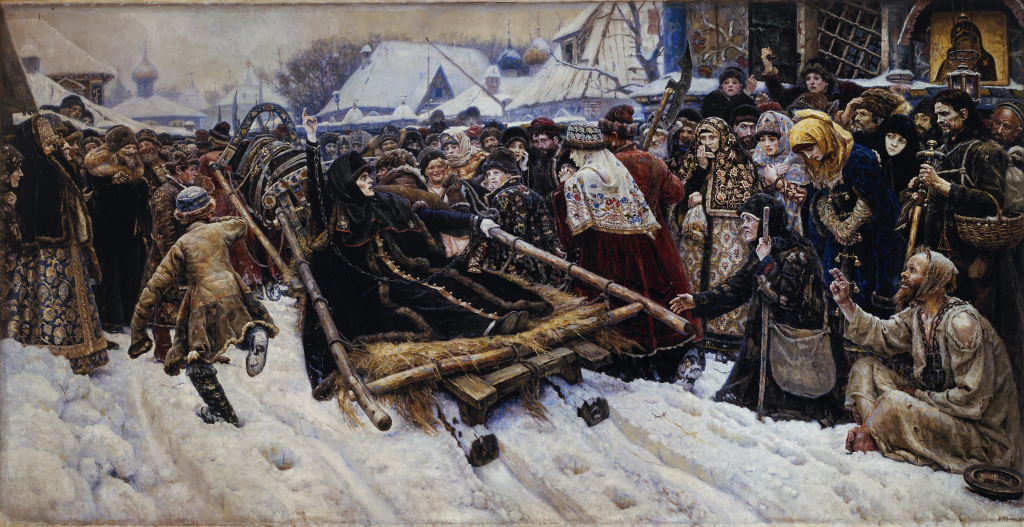
Raskol happened in the mid 17th century when Russian Orthodox Church reform led to the split between the new official church and the majority of the population, producing so called Old Believers movement and resulting in the centuries of oppression against it.
Unlike somewhat similar religious divide of 16th century between Catholics and Protestants in the Holy Roman Empire which after their civil war resulted in a kind of equilibrium and subsequent Cuius regio, eius religio agreement, Russian Raskol resulted in the full victory of the new version of religion. After historically short time it was almost fully adopted by the majority of Russian elites, while common folk en masse just pretended to comply, and a sizeable chunk of population (up to 20% or even more) actively opposed the new church.
All three biggest Russian peasant uprisings of Stepan Razin (17th century), Kondratiy Bulavin and Emelyan Pugachev (both 18th century) had a pronounced Raskol component. Some historians argue Raskol was the major reason for all those uprisings. Over the centuries Russian Empire moved from the fierce repressions against Old Believers to tolerating them, mostly for fiscal and economical reasons, but the divide never went away completely.
The influence of Raskol on the Russian history is enormous, and it lasted till Soviet times. When bolsheviks started to destroy churches, most people supported this and took part in it – not because of overwhelming support for bolshevicks, but because those churches were hated official churches of the forcibly imposed “new” religion. It was a retaliation for almost three hundred years of repressions. And this probably was the last bit of Raskol influence, this comeback followed by the dozens of years of state atheism finally stopped the fight, at least in its vicious forms.
